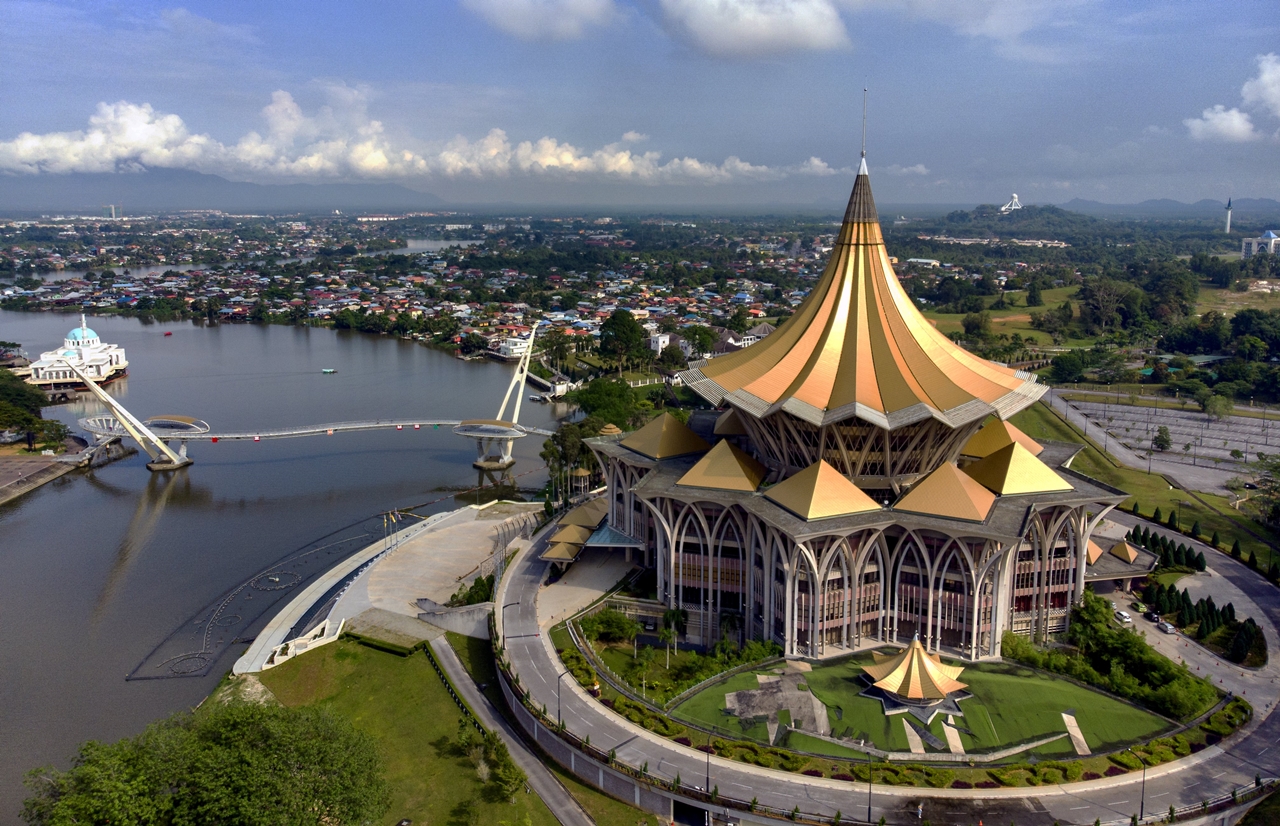
The views of the Sarawak State Assembly building taken from the air – Bernama file photo
KUCHING: The target to develop four Aquaculture Industrial Zones (ZIAs) in Sarawak under the Inland Fisheries and Aquaculture Development Programme (PPPDA) was not achieved due to lack of funds, according to the Auditor-General’s Report 2018 Series 1 released today.
The four areas were identified as Rambungan in Kuching, Batang Ai in Sri Aman, Selalang in Sarikei, and Sundar/Awat-Awat in Limbang.
They were not developed as the government only approved RM9 million out of the allocation applied for, which was RM17.03 million.
In addition, the allocation was specific for the development of Sundar/Awat-Awat and Batang Ai ZIAs, but its scope was moved to entrepreneur development.
As at December 31 last year, the entrepreneur development component for Sundar/Awat-Awat had reached 19 (95 per cent) of the targeted 20 participants, while Batang Ai had reached 30 participants or 100 per cent achieved.
The report further stated the target of the Aquaculture Project Development (PPA) under the 11th Malaysia Plan (RMK11) was based on the original allocation value applied for in RMK11, which was RM27.5 million or RM5.50 million annually to be distributed to 1,225 participants.
However, the target was not achieved as the approved allocation was only RM4.60 million or 17 per cent of the applied allocation.
The Auditor General also found that the programme’s outcome was not achieved as only 52 out of 278 participants of ZIA and PPA, or 18.7 per cent got the targeted income.
Out of the 52 participants, 28 participants were from the ZIA programme who achieved minimum income RM1,500 per month while 24 PPA participants reached the minimum income between RM3,000 and RM4,000 per month.
Furthermore, during an audit visit on January 31 this year, it was found that there were 17 ZIA participants in Batang Ai who did not have aquaculture licence.
Overall, the report found that the programme was not effectively managed as it did not achieve the objectives set.
To address the weaknesses raised in the report and to ensure that the same problems do not occur in future implementation of the programme, the Auditor General recommended that the Department of Agriculture Sarawak take a few remedial steps.
These included reviewing revenue target indicators for the ZIA and PPA programmes; submitting data from ZIA and PPA participants on a regular basis; assessing the performance of participants; and enhancing the monitoring to ensure entrepreneurs have valid licences.
